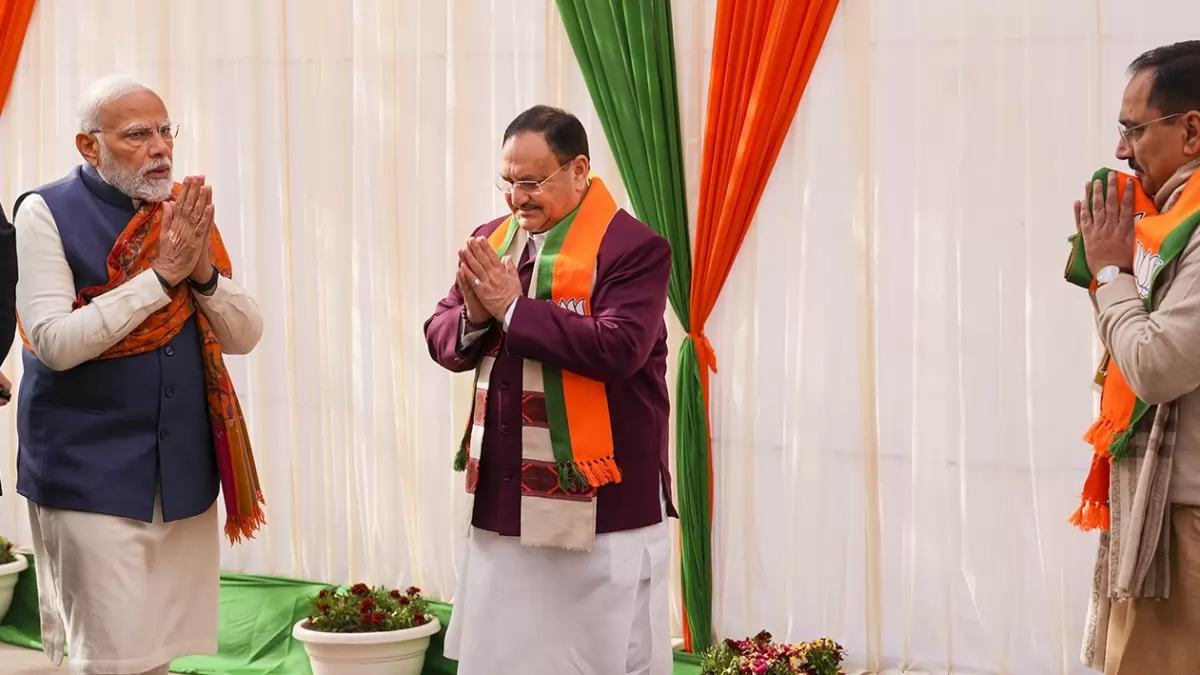
New Delhi, Jan 17: The BJP’s national executive meeting on Tuesday passed a socio-economic resolution praising Prime Minister Narendra Modi’s leadership for transforming India into the fifth largest economy from a ‘Fragile Five’ economy.
The resolution underlined that now the country is moving towards politics and governance of saturation, suggesting that the government’s progarmmes are fulfilling the requirements of the people, Union Minister Dharmendra Pradhan said.
He told a press conference that the resolution was proposed by Maharashtra Deputy Chief Minister Devendra Fadnavis. The BJP’s national executive also expressed its gratitude towards Prime Minister Modi for the construction of the Ram temple in Ayodhya, he said.
The resolution was seconded by Union Minister V Muraleedharan and BJP MP from Haryana Sunita Duggal.
“The opposition used to ridicule the BJP asking the date for the construction of the Ram temple in Ayodhya. Now, the temple is under construction and its date has also been announced,” Pradhan said.
In the last eight and half years, the government has made the Indian economy and society more inclusive and self dependent, the BJP leader said as he underlined that “Sabka Sath Sabka Vikas” is not merely a slogan but philosophy for his party.
“When we came to power, India was in the ‘Fragile Five’ and now, when we are completing 75 years of independence… (it) became the fifth largest economy, leaving behind the United Kingdom,” he said.
Pradhan said the resolution talked about welfare measures such as free ration to the poor, housing for all and free of cost vaccines during the COVID-19 pandemic.
He said that under the Modi government, India’s contribution to the world GDP rose to 3.5 per cent from 2.6 per cent.
The resolution also hailed the Modi government for developing a digital transaction ecosystem and stated that 40 per cent of global digital transactions are happening in India, according to Pradhan.
On the financial side, the resolution talked about the Goods and Services Tax and also 22.6 per cent rise in tax collections, he said. (AGENCIES)

